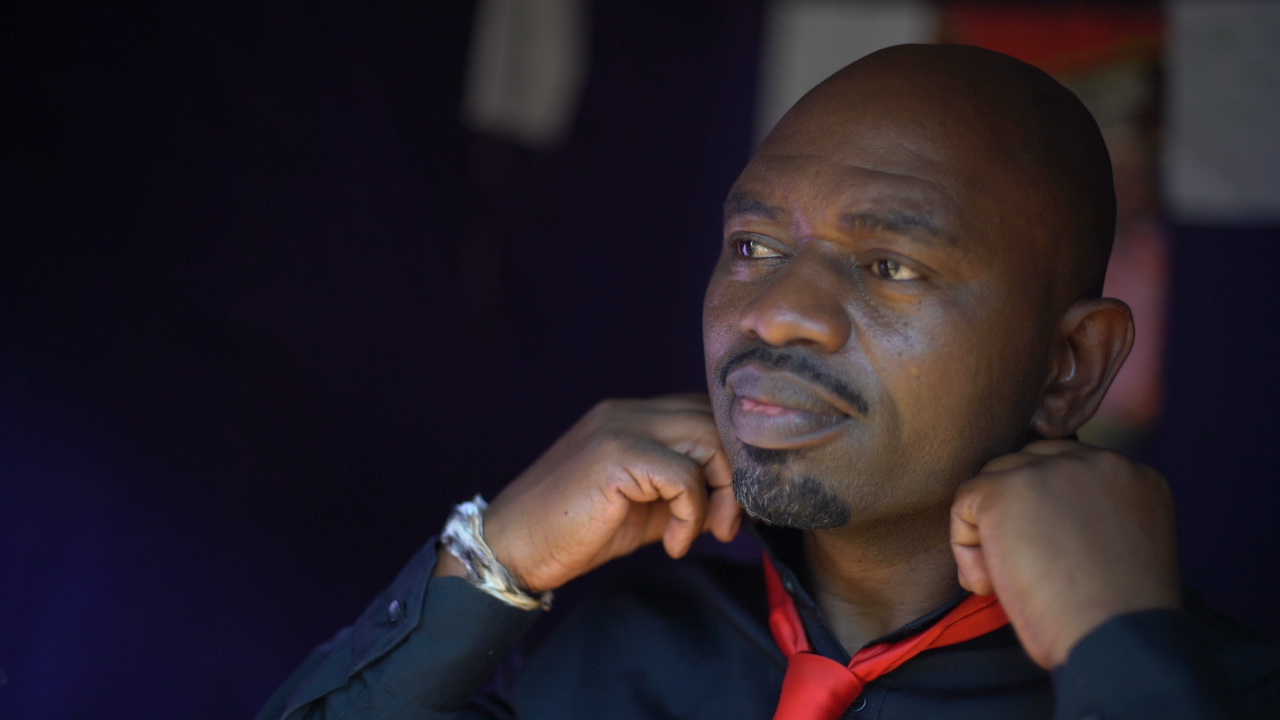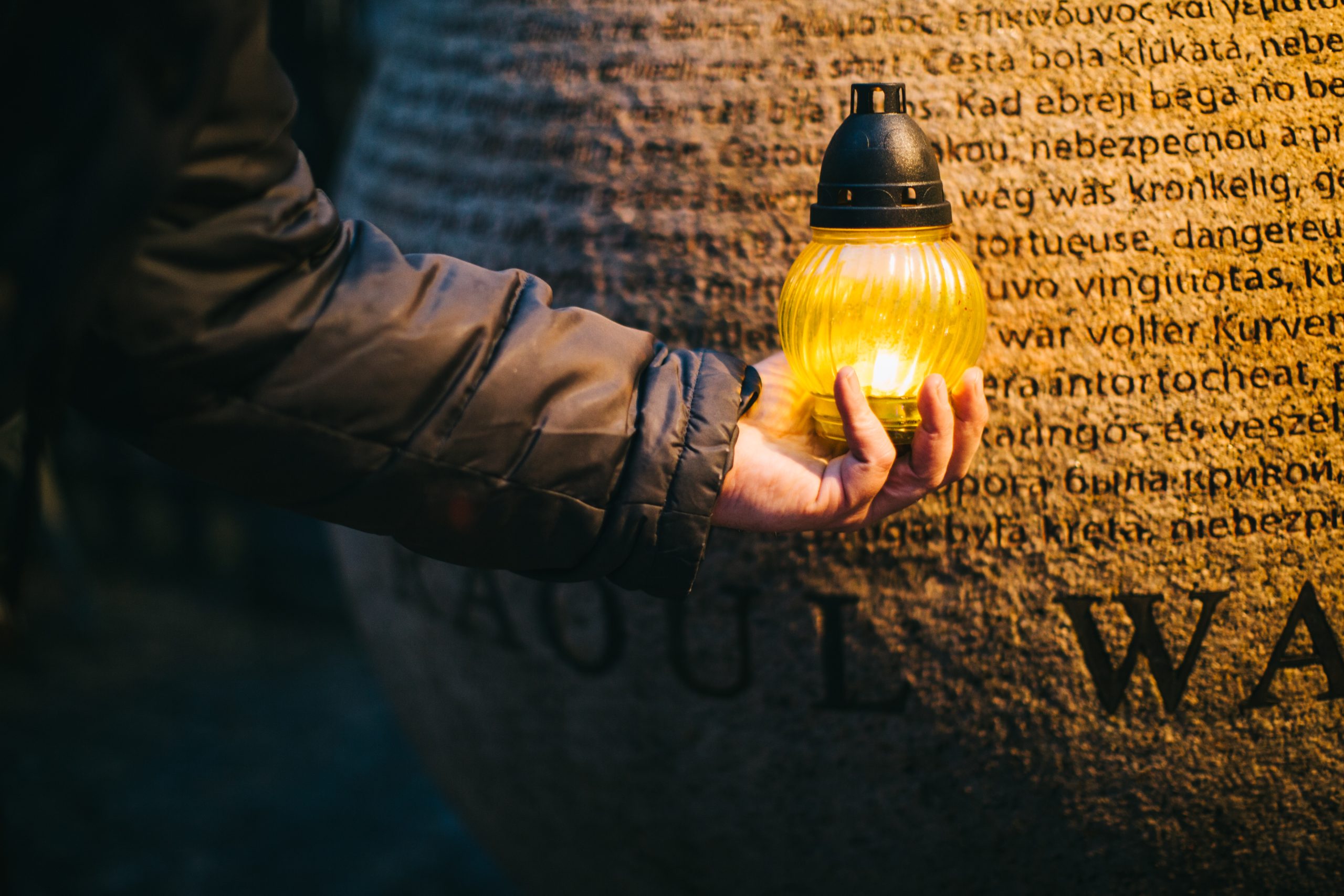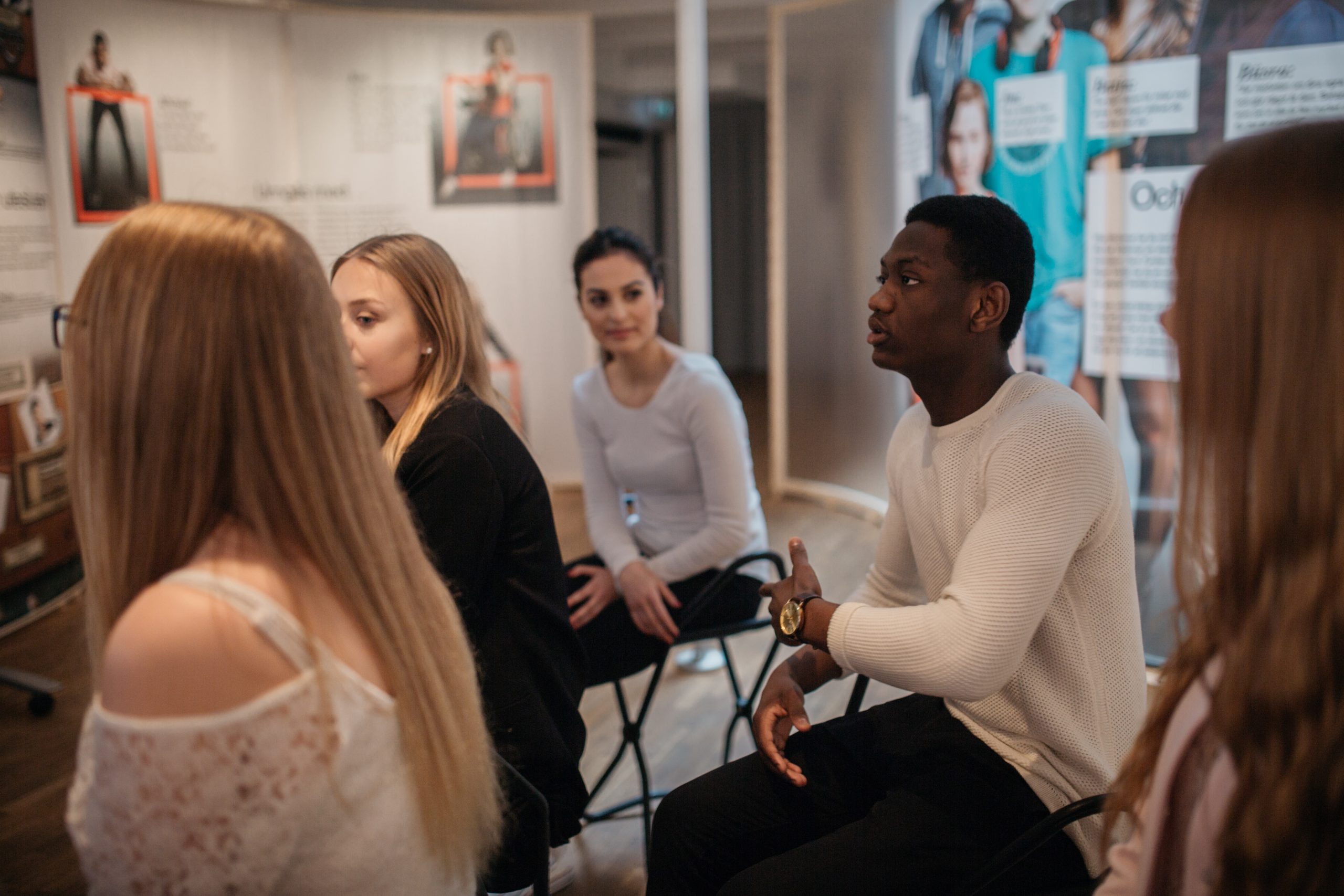2021: S’bu Innocent Zikode
Learn about S’bu Innocent Zikode, recipient of the 2021 Per Anger prize to human rights defenders.

S’bu Innocent Zikode. Photo: Michael Jaspan
We resist the idea that because we are poor, we must be confined to the dark corners. We have organised in solidarity with struggles all over the world.The struggle is global.
Meet S’bu Innocent Zikode
About S’bu Innocent Zikode
Sibusiso (S'bu) Innocent Zikode works for the rights of the poor in South Africa, one of the world’s most unequal countries. He fights for the right to home and land for the most vulnerable in the country’s shack settlements, highlighting the difficult living conditions for shack dwellers.
– A shack without water, electricity, and sanitation is not worth calling a home. On the contrary, it means life-threatening circumstances that are particularly harsh towards women, children, and minority groups. The injustice is even more apparent now that the pandemic affects those who are already disadvantaged, says S’bu. Zikode.
S’bu. Zikode organises his struggle for the poor through the movement Abahlali baseMjondolo, which he co-founded 15 years ago. Today, the movement has 82, 000 members. They all help to shine a light on corruption, power structures, and violence against those living in shacks, for example by initiating legal action and reaching out through media. S’bu. Zikode has been subjected to threats and violence because of his struggle. Within his movement, 18 members have been murdered for their commitment over the years.
Interview with S’bu Innocent Zikode
How would you describe today’s situation for the poor in South Africa?
– Inequality and poverty continue to divide the country, which places the poor, particular women, as the most vulnerable group. This breeds social ills, including domestic violence. We also see violence on migrant communities and other minority groups.
What effects has the Covi-19 lockdown on shack dwellers communities?
– Covid-19 is affecting the poor the hardest. Most shack dwellers are self-employed and survive on daily hustling. So grounding them to stay home has led to hunger and conflicts, increasing gender-based violence. It’s also virtually impossible to keep social distance in shack settlements because overcrowding is their nature. And you can’t wash hands and maintain hygiene where there is no clean water and sanitation.
What can you do to beat the pandemic in such circumstances?
– Currently we are focusing on educating people about Covid-19 and providing water, sanitation and protective equipment for the poor. The next step will be to secure equitable and just distribution of the vaccine, starting with the most vulnerable.
The international community most also monitor and remind a state of its obligations. It is not enough top provide aid and solidarity. There is also a strong imperative for holding to account those countries that violate human rights. Countries where people witness conflict, fighting, and genocide, as well as horrific abuses.
What are the big challenges when it comes to dignified housing for the poor?
–The big challenge is when profit and capital are put before human needs. We need legislation based on the principle that the social value of land comes before its commercial value.
When did you decide to start working for the rights of the poor in South Africa?
– In 1998, I left my village and moved to Durban to go to university. Then living in a shack settlement, I became aware of the horrible living conditions there. I once saw a baby eating worms near the toilets. She must have thought it was rice. A year later another baby was beaten to death by a huge rat. I was devastated by these events.
Eventually my money ran out and I had to drop out of university. I was living with hardly any water and sanitation, no electricity and no garbage collection. That’s when I decided to join in the struggle for social change and work to improve substandard housing and living conditions.
Has your background influenced your line of work?
– Yes, I grew up as a boy scout, which taught me leadership skills and a sense of justice and responsibility. I believe each generation must discover its own mission and fulfil it. Abahlali and I have discovered our mission and that is what we are struggling to fulfil.
What is your message to young South Africans?
– They should know that the land and wealth of any nation should be shared among all those who work it. It as a heritage they should claim, it is to be cherished and protected for future generations. They also need to know the importance of having a place called home for every family. And to educate themselves and join progressive movements that struggle towards ending evictions and homelessness.
How will the Per Anger Prize affect your efforts?
– I think it will give legitimacy to my work and amplify the voice of Abahlali. When it comes to security, it is good that the international community now will be watching.
Facts about S’bu Innocent Zikode
Sibusiso (S'bu) Innocent Zikode is 46 years old and was born in Estcourt, South Africa. He was raised by a single mother working as a domestic worker. He entered law school in 1997 but was forced to quit a few months later because he couldn’t afford the fees.
Zikode joined the ANC, but left soon after. Today he is the president of Abahlali baseMjondolo, a shack-dwellers’ movement that campaigns both against evictions and for public housing.
The motivation of the Per Anger Prize jury
In spite of being targeted and threatened, Sibusiso Innocent Zikode shines a spotlight on injustice committed against society’s most marginalised citizens. His efforts help increase awareness of what it means to have the right to housing and land.
Sibusiso (S'bu) Innocent Zikode was nominated by the organisation Afrikagrupperna.



